
Gavin Hughes
Partner, Military Claims Solicitor
If you have suffered a Non Freezing Cold Injury (NFCI) while serving for the British Armed Forces, you could be entitled to compensation.
An NFCI can be a serious condition with lifelong symptoms that may result in medical discharge and significantly affect your career opportunities in civilian life. Making a civil personal injury claim with Simpson Millar’s specialist Military Claims Solicitors can help restore financial stability to your life.
Our Military Solicitors are experts at helping injured Armed Forces personnel get the compensation they deserve, including those whose military career has been brought to a premature end by a NFCI injury.
Despite the risks involved with being a member of the Armed Forces, if your injury was preventable or mismanaged then you could be entitled to make a claim.
During our free, initial consultation for Armed Forces personnel and veterans, we’ll establish right away if we can take on your case on a No Win, No Fee basis.
Call us today, or request a callback, to arrange your free, initial consultation with our Military Lawyers.
Fill in the form below to get in touch with one of our dedicated team members, or call our team today on: 0800 260 5010
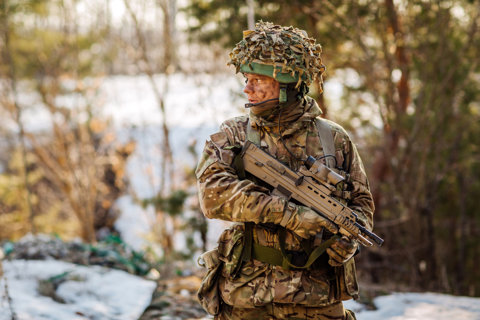
A Non-Freezing Cold Injury is a serious medical condition that primarily affects the extremities, such as the feet, hands, ears, and nose.
A NFCI is a form of tissue damage caused by prolonged exposure to cold and wet conditions, leading to damage to the blood vessels and small nerve fibres.
Unlike frostbite, NFCI can develop in environments where the temperature is above freezing but still cold enough to cause significant damage to nerves and blood vessels.
The nature of military operations, which often involve exposure to extreme conditions, makes service members particularly vulnerable to this injury. However, NFCI is often avoidable.
Symptoms, which can develop gradually and persist long after the initial exposure, can lead to long-term health problems that significantly affect the lives of those who suffer from it.
NFCI symptoms include:
The root cause of NFCI is continuous exposure to cold and wet conditions. The main risk factors contributing to NFCI include prolonged immersion in cold water, which is common during amphibious operations, and exposure to cold environments without adequate protective gear.
Another significant factor is immobility in cold conditions. Remaining stationary for long periods reduces blood circulation, increasing the likelihood of developing NFCI. Repeated exposure to such environments, without sufficient time for recovery, further compounds the risk, making NFCI more likely.
These conditions are often unavoidable in military settings, especially during training exercises, deployments, and other operations. The combination of these factors creates an environment where NFCI can develop and, if not addressed properly, can lead to long-term health issues.
If you’ve sustained a NFCI injury during your time in the Armed Forces, our specialist team of military injury lawyers could help you bring a claim against the MoD.
NFCIs present a range of symptoms, which can vary in severity depending on the extent of the exposure and the individual’s response.
Pain
One of the most common symptoms is persistent pain in the affected areas, often described as a burning or throbbing sensation. This pain can be constant and may worsen during cold weather or when the affected area is exposed to cold.
Swelling
NFCI can cause swelling and redness in the affected areas, particularly in the feet and hands, making movement uncomfortable and sometimes painful.
Numbness and tingling
Numbness and tingling in the affected limbs are also common, with many individuals reporting a "pins and needles" sensation.
Cold Sensitivity
For those with NFCI, even mild cold can cause extreme discomfort, a condition known as cold sensitivity.
Blisters, cracks and ulcers
In more severe cases, the skin in the affected areas may blister, crack, or develop ulcers. These symptoms not only cause physical discomfort but can also lead to reduced mobility, making everyday activities challenging.
The long-term impact of NFCI can be profound, affecting not just physical health but also mental and emotional well-being.
Our Military Claims Solicitors will evaluate the full extent of your injuries and their impact before providing tailored advice aimed at ensuring you receive the maximum possible compensation.
Non Freezing Cold Injuries (NFCI) can range from mild to severe, with some cases affecting your ability to work outdoors or causing ongoing issues with manual dexterity. These resulting issues make it difficult to fulfil duties effectively and can lead to medical discharge. This can be distressing, especially when you have to leave a secure career due to an injury that could have been prevented.
The Ministry of Defence (MoD) has a legal duty of care to prevent and manage NFCI, including:
The MoD must also adjust duties to avoid further exposure once an NFCI is diagnosed. Failure to meet these responsibilities can exacerbate the injury, leading to more permanent damage and potential claims against the MoD.
If you’ve experienced an NFCI due to these avoidable factors, our military claims lawyers are here to help you secure the compensation you deserve.
NFCI is often misunderstood. A common misconception is that temperatures need to be freezing to cause harm to extremities. But, unlike Frostbite, NFCI can develop in environments where the temperature is above freezing, making it a risk in many military settings.
Another misconception is that NFCI is a minor injury. In fact, NFCI can lead to chronic, long-term health issues.
NFCI is a serious condition with long-term consequences for military personnel, often leading to medical downgrading, halted career progression, loss of earnings, and in some cases discharge from service. Beyond the physical toll, it can also affect mental health, causing anxiety and depression. Despite misconceptions that personnel can contribute to the onset of NFCI is caused by failing to follow instruction, this criticism is unfair, especially when individuals lack adequate equipment for harsh conditions.



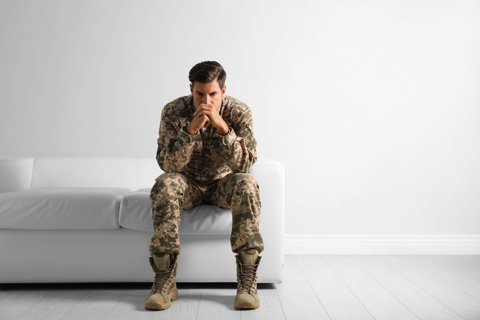
Our military claims experts will guide you through each step of the NFCI claims process which involves:
Throughout the process, Simpson Millar will keep you informed and provide the support you need. Our goal is to ensure that you receive the compensation you deserve whilst minimising stress and disruption.
The amount of Non Freezing Cold Injury compensation you may be entitled to depends on several factors, including the severity of your injury, the impact on your life, and the financial losses you have incurred as a result.
Each case is unique, but in general, more severe cases of NFCI, where the injury has caused significant pain, suffering, and long-term health issues, will result in higher compensation.
Additional factors include how NFCI has affected your ability to work and your overall quality of life. For example, if your NFCI has led to lost wages, reduced earning capacity, or the inability to continue your military service, these factors will be considered.
Financial losses, such as medical expenses, lost pension benefits, and other costs associated with managing your condition, are also considered.
You may be entitled to compensation for a variety of losses and hardships. For example, non-freezing cold injuries (NFCI) can be career-ending, affecting your job prospects after discharge. As a result, you may be able to claim compensation for:
To find out more about what you may be able to claim for, arrange a free, initial consultation with a member of our Military Injury & Accident Claims team.
It is recommended that in all cases individuals who have suffered a NFCI injury in the course of their forces career should make a claim under the Armed Forces Compensation Scheme (AFCS). This is a no-fault scheme, so compensation should be paid in connection with any NFCI injury.
While AFCS payouts are typically lower than civil claims, you can pursue both, as any AFCS award will be offset against a civil claim.
Our experienced lawyers can assist with both AFCS and civil claims, ensuring you get the maximum compensation. Additionally, it’s worth investigating any Critical Illness Insurance policies, as private insurance claims are not offset against civil awards. Simpson Millar can guide you through this entire process.
Yes. A civil claim for NFCI involves seeking compensation from the Ministry of Defence or other responsible parties for the injury and losses you have suffered due to your injury.
This type of claim allows for more comprehensive compensation, taking into account the specific financial and personal impacts on your life.
Pursuing both an AFCS claim and a civil claim can maximise the compensation you receive, as each claim covers different aspects of your injury and losses.
It’s important to get expert legal advice to navigate the complexities of making dual claims. Our expert Military Claims Lawyers can help you receive the maximum financial compensation you’re entitled to.



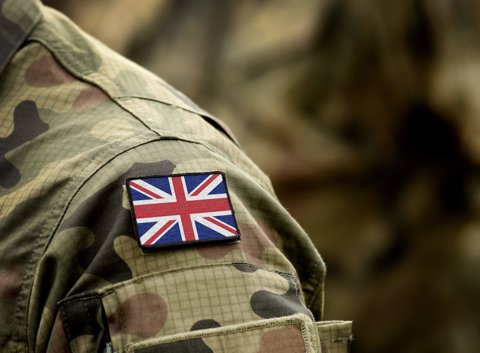
Like military training injury claims, there are strict time limits for making an NFCI claim, so it is crucial to be aware.
In general, you have three years from the date of your diagnosis to make a civil claim for NFCI. This time limit may be extended in certain circumstances, such as if the injury was not immediately diagnosed, but it is always best to seek legal advice as soon as possible to ensure you do not miss the deadline.
For an AFCS claim, the time limit is typically seven years from the date of the injury or the date you first became aware of it. However, like civil claims, there are exceptions to this rule, and it is important to get legal advice early to understand your options.
Our Military Claims Solicitors can help you navigate these time limits and ensure that your claim is filed in a timely manner.
Simpson Millar has a long history of successfully handling military injury claims, with a team of specialist solicitors who understand the unique challenges faced by service members and veterans.
Our firm offers a free, initial consultation, giving you expert advice on the strength of your claim without any financial commitment.
We operate on a No Win No Fee basis, meaning if we take your case on you won’t have to pay any legal fees unless your claim is successful. This approach ensures that you can seek compensation without the risk of financial loss.
Our lawyers understand that when making a claim for NFCI as a result of military service, you need trusted expert legal advice delivered quickly and clearly.
Call us today, or request a callback, to arrange your free, initial consultation with our Military Claims Solicitors.
The length of time it takes to resolve an NFCI claim can vary depending on the complexity of the case and the willingness of the MOD or other responsible parties to accept liability.
Some claims may be resolved within 18 months, especially if the evidence is clear and the injury is well-documented. However, more complex cases can take longer, sometimes up to a year or more.
Our NFCI solicitors will work diligently to resolve your claim as quickly as possible while ensuring that you receive the full compensation you deserve.
At Simpson Millar, we believe financial concerns shouldn’t stop you from seeking the compensation you deserve. That's why we offer our services on a No Win No Fee basis. This means you won’t pay any upfront legal fees and won’t owe us anything if your case is unsuccessful.
If your claim succeeds, the other side will cover a portion of our legal costs, but some fees may come from your damages, capped at an agreed percentage.
Additional costs, known as Disbursements, like court or expert report fees, can be covered by After the Event Insurance. Your case handler will provide full details before you proceed, ensuring transparency and confidence throughout the process.
Dealing with NFCI can be challenging, both physically and emotionally. For some, the support offered by charities such as Help for Heroes, SSAFA and Walking with the Wounded, is invaluable.
If you are struggling with NFCI, we can help you access the resources and support you need.
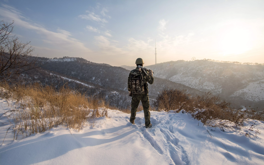
Our client was diagnosed with a non freezing cold injury in his hands and feet, after an assessment at the Institute of Naval Medicine in Gosport. Learn how we were able to help him

Our Military Claims Solicitors helped a former British armed forces serviceman get £400,000 compensation after he was diagnosed with a Non Freezing Cold Injury in his hands and feet.
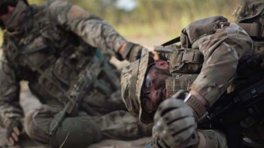
Soldier’s Deployment on 10-Day Tour Hampered Recovery from Back Injury- While on an Army tour in Afghanistan, our client Mr P came under fire and tried to climb down from the turret of his armoured vehicle at speed.
The first step is to report your symptoms to a medical centre or GP. Once you have done this, contact Simpson Millar for a free, initial claims assessment. From there, we can help you understand your options and guide you through the process of making a claim.
To support your NFCI claim, you will need medical records confirming your diagnosis, service records showing your exposure to cold conditions, and any other documentation that evidence the link between your injuries and military service. Witness statements and independent medical assessments could also support your claim.
Yes, you can make an NFCI claim while still serving in the military. It is your right to seek compensation for an injury caused by negligence while serving in the UK Armed Forces.
Making a claim should not impact your military career. Your right to seek compensation for an injury is protected, and service members are entitled to pursue claims without repercussions to their career.
Yes, you can claim for NFCI if the injury occurred while you were deployed overseas. The key is to demonstrate that the injury was caused by your military service and that there was negligence involved.
Each case is unique and the Non Freezing Cold Injury compensation amount you can expect to receive depends on the severity of your injury, the impact on your life, and the financial losses you have incurred.
Making a civil NFCI claim entitles you to seek damages for more than just the injury itself. It will also consider the impact of your injury on each aspect of your life and award compensation accordingly.
Yes, at Simpson Millar, we offer a No Win No Fee arrangement for NFCI claims. This ensures that you can pursue your claim without the risk of financial loss.
Our specialist military claims solicitors have a proven track record of successfully settling NFCI cases for Armed Forces personnel, securing compensation in even the most complex cases.
With extensive experience in military injury claims, we understand the unique physical, emotional, and career challenges faced by service members. Our focus is on providing dedicated support and achieving the best possible outcome for you.
If your claim is unsuccessful, we can review the decision and advise you on whether it is possible to appeal or pursue other legal options.
We will guide you through the process and continue to work to ensure you receive the compensation you deserve.
Call us today, or request a callback, to arrange your free, initial consultation with our Military Claims Solicitors.
We understand that injuries sustained during military service can have long-lasting consequences on your life. If you have developed a NFCI during UK military service due to negligence or a lack of duty of care, we are here to help you claim the financial compensation you deserve.
If you have any questions or are ready to discuss your case with our specialist team, contact us today.

It’s been widely reported that a military officer with 26 years of service was the victim of derogatory and insulting remarks during a consultation with a civilian panel advising the Ministry of Defence on his Armed Forces Compensation Scheme (AFCS) claim.
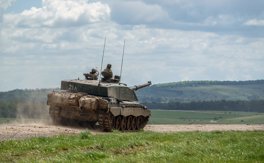
Back in 2014, the Ministry of Defence (MoD) signed a contract with US defence contractor General Dynamics to design, build and test 589 fully-digitised, armoured Ajax land vehicles. Learn More
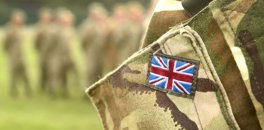
We helped a woman who was medically discharged from the Army claim compensation for medical negligence, after a surgeon’s medical recommendations had been ignored many years earlier. Learn how we were able to help
Fill in the form below to get in touch with one of our dedicated team members, or call our team today on: 0800 260 5010